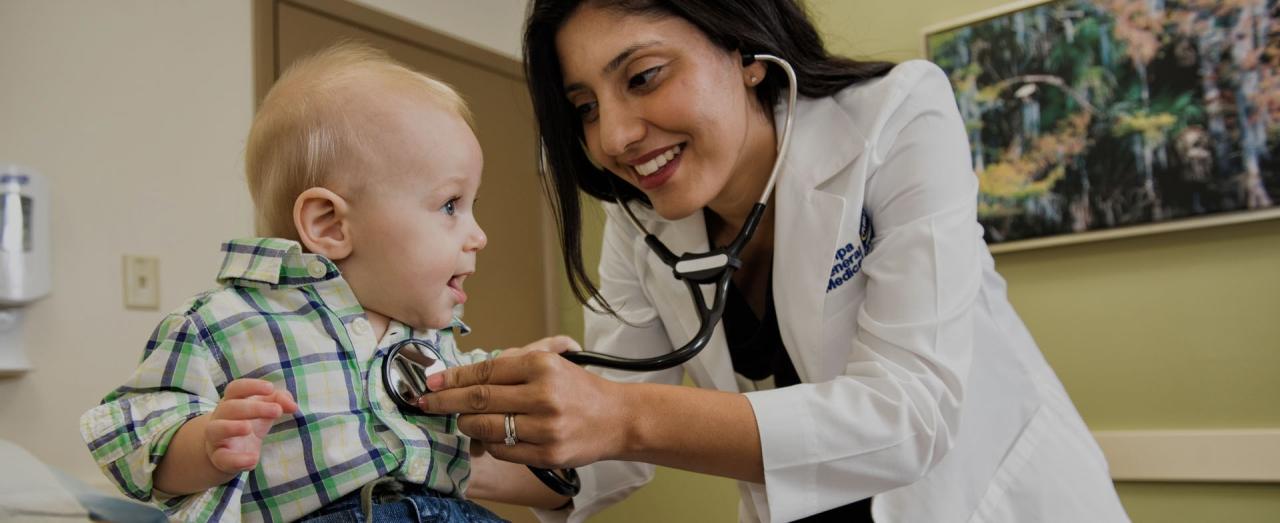The Vital Role of Primary Care Physicians for Family Healthcare
Starting off with primary care physicians for family healthcare, this paragraph aims to provide an intriguing overview of the topic, emphasizing the importance of having a consistent healthcare provider for families.
Expanding on the various aspects included in the Artikel, this section sets the stage for a detailed exploration of primary care physicians' role in family health management.
Importance of Primary Care Physicians for Family Healthcare

Primary care physicians play a crucial role in providing comprehensive healthcare for families. They serve as the first point of contact for individuals of all ages and are responsible for managing a wide range of medical conditions.
Benefits of Having a Consistent Primary Care Physician
Having a consistent primary care physician offers numerous benefits for family health management. Some of these include:
- Continuity of Care: A primary care physician who knows your medical history can provide personalized and continuous care, leading to better health outcomes.
- Preventive Care: Primary care physicians focus on preventive measures, such as regular check-ups and screenings, to detect and address health issues early on.
- Coordination of Care: They can coordinate care with specialists and other healthcare providers to ensure a holistic approach to treatment.
Common Health Issues Addressed by Primary Care Physicians
Primary care physicians address a wide range of health issues for families, including but not limited to:
- Upper Respiratory Infections: Common colds, sinus infections, and allergies are often treated by primary care physicians.
- Chronic Conditions: Management of chronic conditions like diabetes, hypertension, and asthma is a key focus of primary care.
- Mental Health Concerns: Primary care physicians can address mental health issues such as anxiety, depression, and stress.
Qualifications and Training of Primary Care Physicians
Primary care physicians undergo extensive educational requirements and training to provide comprehensive care for individuals and families. To become a primary care physician, one must complete a bachelor's degree, followed by four years of medical school to earn a Doctor of Medicine (MD) or Doctor of Osteopathic Medicine (DO) degree.
Subsequently, a residency program in family medicine, internal medicine, or pediatrics is required, lasting around three years.
Educational Requirements
- Completion of a bachelor's degree
- Four years of medical school to earn an MD or DO degree
Residency Training
- Residency program in family medicine, internal medicine, or pediatrics
- Duration of approximately three years
Comparison with Specialists
Primary care physicians are trained to manage a wide range of medical conditions and provide preventive care for all age groups. While specialists focus on a particular organ system or disease, primary care physicians have a broad understanding of various health issues and can coordinate care for complex medical conditions.
They serve as the first point of contact for patients and refer them to specialists when necessary.
Ongoing Education and Certifications
Primary care physicians are encouraged to engage in continuous medical education to stay updated on the latest advancements in healthcare. Obtaining certifications in areas such as geriatrics, women's health, or sports medicine can enhance their skills and provide specialized care to patients.
By pursuing ongoing education and certifications, primary care physicians ensure that they deliver high-quality and evidence-based care to their patients.
Services Offered by Primary Care Physicians for Families
Primary care physicians play a crucial role in providing comprehensive healthcare services for families. They offer a wide range of services to address the diverse needs of individuals across different age groups within a family unit.
Preventive Care Measures
Primary care physicians focus on preventive care measures to promote family well-being. This includes regular health screenings, vaccinations, and counseling on healthy lifestyle habits. By emphasizing preventive care, they aim to identify and address health issues before they escalate, ultimately improving the overall health of family members
Coordination of Care
Primary care physicians also play a key role in coordinating care for various family members with different healthcare needs. They serve as the central point of contact for managing the healthcare of the entire family, ensuring that medical information is shared and treatments are aligned across different specialists.
This coordination helps streamline the healthcare process and enhances the continuity of care for each family member.
Building a Strong Relationship with Your Primary Care Physician

Establishing a good rapport with your primary care physician is crucial for ensuring the best possible healthcare outcomes for your family. Open communication and trust play a vital role in fostering a strong relationship with your healthcare provider.
The Importance of Open Communication
Effective communication is key to building a strong patient-physician relationship. It allows you to share important information about your family's health history, current symptoms, and concerns. By openly discussing your health issues with your primary care physician, they can provide more accurate diagnoses and personalized treatment plans.
- Always be honest and transparent about your symptoms and health habits.
- Ask questions to clarify any doubts or concerns you may have about your health.
- Share any relevant information about your family's medical history to help your physician make informed decisions.
The Role of Trust in the Patient-Physician Relationship
Trust is the foundation of any successful patient-physician relationship. When you trust your primary care physician, you are more likely to follow their advice, adhere to treatment plans, and engage in preventive care measures. This trust is built over time through consistent, compassionate care and positive outcomes.
- Follow through with recommended treatments and lifestyle changes to show your commitment to your health.
- Be open to discussing any concerns or fears you may have about your health with your physician.
- Respect your physician's expertise and experience in guiding your family's healthcare journey.
Enhancing Family Healthcare Outcomes
A strong relationship with your primary care physician can lead to improved healthcare outcomes for your family. When there is trust and open communication, your physician can better understand your family's unique healthcare needs and provide tailored care that promotes overall well-being.
By working collaboratively with your primary care physician, you can create a healthcare plan that prioritizes prevention, early detection, and holistic wellness for your family.
Last Word

In conclusion, primary care physicians play a crucial role in ensuring the well-being of families through their comprehensive healthcare services. This summary encapsulates the key points discussed, highlighting the significance of building a strong relationship with a primary care physician for optimal family healthcare outcomes.
FAQ Guide
How often should my family see a primary care physician?
It is recommended for families to have regular check-ups with their primary care physician at least once a year for preventative care and health maintenance.
What should I bring to my first appointment with a primary care physician?
For your first visit, bring any medical records, a list of current medications, and be prepared to discuss your medical history and any concerns you may have.
Can primary care physicians treat children as well as adults?
Yes, primary care physicians are trained to provide healthcare services to patients of all ages, including children and adults.




